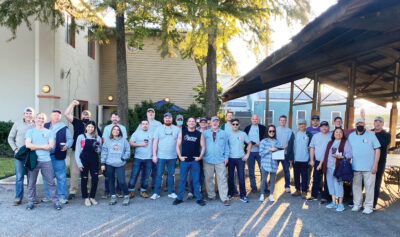As Congress turns its attention to broader fiscal matters such as the debt ceiling and federal budget for Fiscal Year (FY) 2024, lawmakers have begun to roll out tax legislation that they hope will incentivize economic growth in an uncertain economic climate. On April 20, Sens. Shelley Moore Capito (R-WV) and Kyrsten Sinema (I-AZ) and Reps. Adrian Smith (R-NE) and Joe Morelle (D-NY) introduced the bipartisan and bicameral American Investment in Manufacturing (AIM) Act. This important bill would restore the full suite of deductions for business loans, known as Earnings Before Interest, Depreciation and Amortization (EBITDA), thereby creating business certainty and promoting investment. Unfortunately, tax breaks for depreciation, which includes expensing of equipment and amortization were dropped in 2022. The Federation and its allies in the manufacturing community are urging Congress to restore these important deductions and pass the AIM Act.
In more tax news, the Hardwood sector and the broader business community have identified restoration of the 100 percent expensing of equipment deduction as a high priority for the 118th Congress. Bonus depreciation serves as a powerful pro-growth tool by reducing the after-tax cost of long-lived capital equipment purchases such as kilns and boilers. Unfortunately, this provision began to phase down to 80 percent in 2023, per the requirements of the Tax Cuts and Jobs Act (TCJA) of 2017. Under current law, bonus depreciation will continue to scale down in 20 percent increments over the next four years, unless Congress intervenes. Failure to act will undermine business planning as well as result in higher tax liabilities for many businesses. To that end, lawmakers have also rolled out the Accelerate Long-Term Investment Growth Now (ALIGN) Act. Introduced by Sen. Jim Lankford (R-OK) and Rep. Jodey Arrington (R-TX) on March 30, this important bill will make 100 percent expensing permanent. Looking to the days ahead, the Federation has also signed onto a letter supporting the soon-to-be introduced “Main Street Tax Certainty Act of 2023,” with Sen. Steve Daines (R-MT) leading the charge. This important bill would make permanent the Sec. 199A deduction for small businesses, set at 20 percent of Qualified Business Income (QBI). This important tax break, established by the Tax Cuts and Jobs Act of 2017, is set to expire in 2025 and has delivered substantial tax relief to a broad cross-section of the Hardwood sector.
Under an expedited legislative schedule, a rare event in a closely divided Congress, tax bills take several months to move across the finish line and are more often than not bundled into a single package at the end of the calendar year. Given this timetable, the Federation placed tax policy as a high priority for the June Fly-In, creating an opportunity to build momentum for legislation that will maximize fiscal flexibility for Hardwood companies.
The Hardwood Federation will continue to track these and other emerging business tax issues on behalf of the industry. Look for future updates here and in the Federation’s weekly and monthly updates. If you are not on our mailing list, please contact Bryan Brendle at Bryan.Brendle@hardwoodfederation.com and we will make sure you are added!








